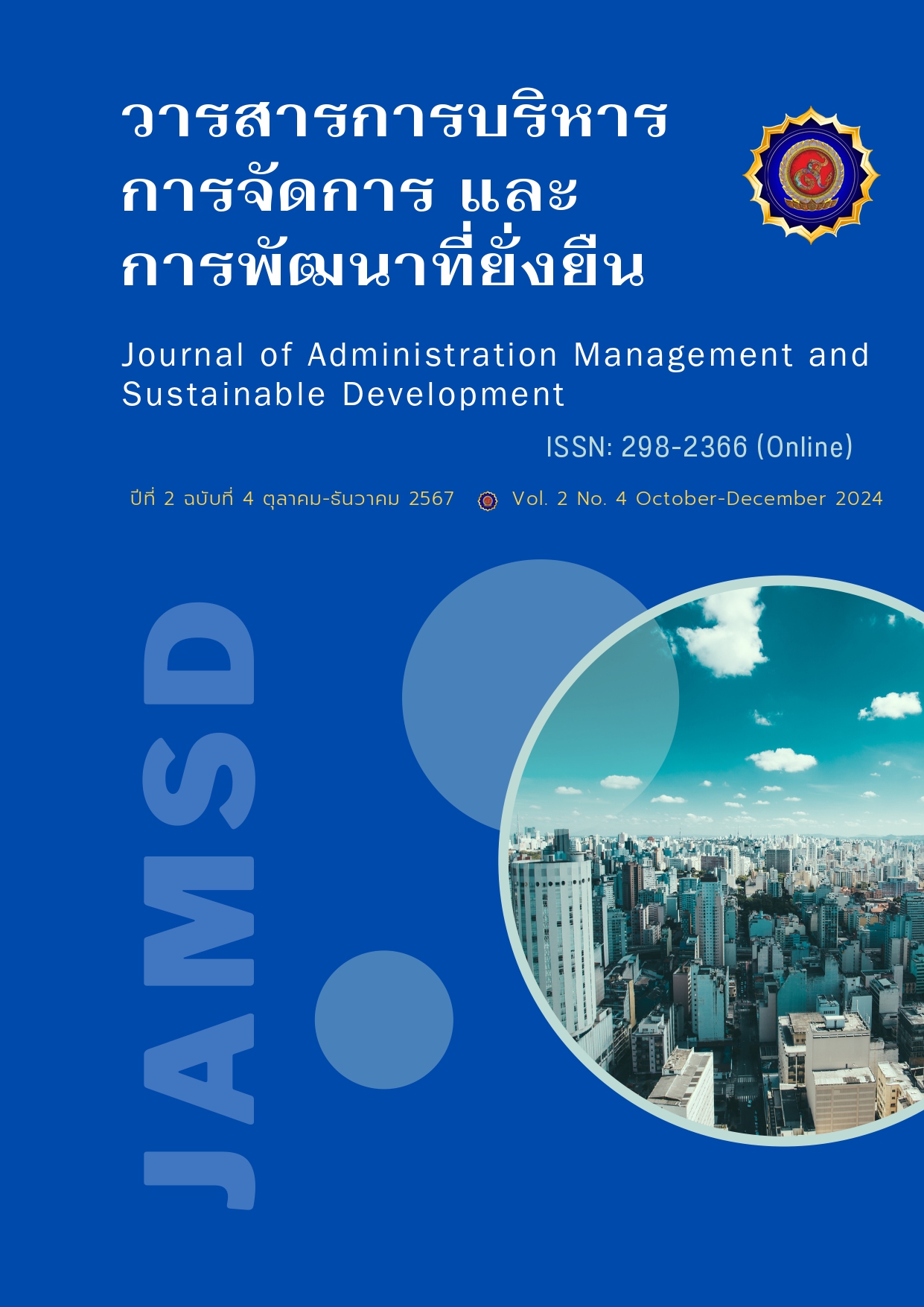Contemporary Public Administration and Trends in Public Administration
Keywords:
contemporary public administration, new public management, new public services, e-government, good governanceAbstract
This academic article explores the contemporary ideas in Public Administration and new directions in public sector management. It discusses the emergence and development of modern concepts in Public Administration, focusing on the changes and evolution of government management approaches in the present era. The article begins with the concept of New Public Management (NPM) which emphasizes improving efficiency and effectiveness in public administration by applying private sector management principles to the public sector. This is followed by the New Public Service (NPS) approach which stresses public service and the involvement of citizens in the management process. Furthermore, the article examines the integration of Digital Governance which utilizes digital technology for government management, including the role of e-Government systems to enhance service delivery and communication between government and citizens. The paper also highlights the importance of Collaborative Governance which fosters cooperation and networks between the public sector, private sector and citizens to achieve better outcomes and respond to societal needs more effectively. Additionally, it addresses the concept of Adaptive Public Administration which emphasizes the need for flexibility and adaptability in response to the changing global landscape. The article concludes by discussing the challenges in applying these contemporary ideas in public administration and the importance of Governance principles such as transparency, accountability and citizen participation in decision-making processes.
References
โกลด์สมิท, สตีเฟ่น และเอกเกอร์ส, ดี. วิลเลียม. (2552). การบริหารงานภาครัฐแบบเครือข่าย มิติใหม่ของงานภาครัฐ: นวัตกรรมการบริหารงานแบบมีส่วนร่วมทุกภาคส่วนตอบสนองต่อการเปลี่ยนแปลงอย่างมีประสิทธิภาพและประสิทธิผล [Governing by Network]. (จักร ติงศภัทิย์ และกฤษฎา ปราโมทย์ธนา, แปล). กรุงเทพฯ. เอกซเปอร์เน็ท.
จุมพล หนิมพานิช. (2553). การบริหารจัดการภาครัฐใหม่: หลักการ แนวคิดและกรณีตัวอย่างของไทย = New publice management: principles, concepts, and Thai case study. พิมพ์ครั้งที่ 3. นนทบุรี. มหาวิทยาลัยสุโขทัยธรรมาธิราช.
จุลศักดิ์ ชาญณรงค์. (2562). ความ “ใหม่” ของรัฐประศาสนศาสตร์ : The “New” of Public Administration. วารสารสหวิทยาการ วิทยาลัยสหวิทยาการ มหาวิทยาลัยธรรมศาสตร์,16 (2), 55-83.
ไชยา ยิ้มวิไล. (2557). พัฒนาการรัฐประศาสนศาสตร์และบริหารรัฐกิจ: จากอดีตสู่ปัจจุบันและอนาคต. กรุงเทพฯ. โรงพิมพ์มหาวิทยาลัยศรีปทุม.
ติน ปรัชญพฤทธิ์. (2553). รัฐประศาสนศาสตร์เปรียบเทียบเครื่องมือในการพัฒนาประเทศ. พิมพ์ครั้งที่ 5. กรุงเทพฯ. อินทภาษ.
ทศพร ศิริสัมพันธ์. (2551). "ทิศทางและแนวโน้มของรัฐประศาสนศาสตร์" ในประมวลสาระชุดวิชา แนวคิด ทฤษฎี และหลักการรัฐประศาสนศาสตร์ หน่วยที่ 15 หน้า 439-476. นนทบุรี. มหาวิทยาลัยสุโขทัยธรรมาธิราช.
นันทวัฒน์ บรมานันท์. (2554). มาตรฐานใหม่ของการจัดทำบริการสาธารณะระดับชาติในประเทศไทย. กรุงเทพฯ: วิญญูชน.
บุญทัน ดอกไธสง. (2557). รัฐประศาสนศาสตร์เชื่อมโยง AEC ก้าวสู่ความมั่งคั่ง 2020. กรุงเทพฯ. ปัญญาชน.
พบสุข ช่ำชอง. (2561). การบริหารจัดการบนฐานความร่วมมือ: ฐานรากนวัตกรรมท้องถิ่ : Collaborative Governance: Local Innovation Through. มหาสารคาม: โครงการผลิตตำราฯ วิทยาลัยการเมืองการปกครอง.
พระครูปลัดประวิทย์ วรธฺมฺโม และพระครูใบฎีกาอภิชาติ ธมฺมสุทฺโธ. (2565). รัฐประศาสนศาสตร์แนวใหม่กับการพัฒนาที่ยั่งยืน. วารสารศิลปะศาสตร์ราชมงคลสุวรรณภูมิ, 4 (3), 587-599.
เรืองวิทย์ เกษสุวรรณ. (2566). ความรู้เบื้องต้นเกี่ยวกับรัฐประศาสนศาสตร์. กรุงเทพฯ. วิทยาลัยสหวิทยาการ มหาวิทยาลัยธรรมศาสตร์.
วศิน ปั้นทอง. (2564). Digital Transformation กับนวัตกรรมการจัดบริการสาธารณะ: บทเรียนจากเอสโตเนีย เกาหลีใต้ และสหราชอาณาจักร. สืบค้นเมื่อ 5 พฤศจิกายน 2567 สืบค้นจาก www. Polsci.tu.ac.th/direk/view.aspx?ID=502.
วิรัช วิรัชนิภาวรรณ. (2549). แนวคิดทางรัฐประศาสนศาสตร์การประยุกต์และการพัฒนา. โฟร์เฟซ, กรุงเทพฯ.
Bannister, F., & Connolly, R. (2014). ICT, Public Value, and the Future of e-Government. In A. M. M. A. P. (Eds.), E-Government in Asia: Key Issues and Challenges (pp. 93-112). Singapore: Springer.
Bardach, E. (1998). Getting Agencies to Work Together: The Practice and Theory of Managerial Craftsmanship. Washington, D.C.: Brookings Institution Press.
Benington, J., & Moore, M. H. (2011). Public Value: Theory and Practice. London: Palgrave Macmillan.
Bovaird, T., & Löffler, E. (2003). Evaluating the Quality of Public Governance: Indicators, Models and Methodologies. International Review of Administrative Sciences, 69(3), 313-328.
Brown, K. A., & Lambert, K. (2013). Collaborative Governance: The Role of Public-Private Partnerships in Urban Development. Public Administration Review, 73(5), 679-688.
Bryson, J. M., Crosby, B. C., & Bloomberg, L. (2014). Public Value Governance: Moving Beyond Traditional Public Administration and the New Public Management. Public Administration Review, 74(4), 445-456.
Emerson, K., & Nabatchi, T. (2015). Evaluating the Productivity of Collaborative Governance Regimes. The Policy Studies Journal, 43(4), 550-579.
Gordon, J., & Baird, K. (2018). Adaptive Public Administration: The Role of Adaptive Capacity in Public Sector Management. International Journal of Public Administration, 41(1), 18-30.
Haffner, J. (2020). Agility in Public Administration: A New Paradigm for Public Sector Management. Public Administration Review, 80(2), 233-245.
Haffner, J. (2020). Agile Management in a Changing Society and Economy. New York: Business Insight Publishing.
Hargrove, E. C. (2003). Mastering the American Presidency: A New Perspective on the Presidency, Leadership, and Politics. Washington, D.C.: The Brookings Institution Press.
Heeks, R. (2002). e-Government in Africa: A Stakeholder Perspective. Development Informatics Working Paper Series, University of Manchester.
Hood, C. (1991). A Public Management for All Seasons? Public Administration, 69(1), 3-19.
Kettl, D. F. (2015). The Next Government of the United States: Why Our Institutions Fail and How to Fix Them. New York: W. W. Norton & Company.
Lane, J. E. (2000). New Public Management. London: Routledge.
Mansell, R., & Steinmueller, W. E. (2000). Mobilizing the Information Society: Strategies for Growth and Opportunities in the New Economy. Paris: OECD Publishing.
Moore, M. H. (1995). Creating Public Value: Strategic Management in Government. Cambridge, MA: Harvard University Press.
Osborne, D., & Gaebler, T. (1992). Reinventing Government: How the Entrepreneurial Spirit is
Pollitt, C. (1993). Managerialism and the Public Services: The Anglo-American Experience. Oxford: Blackwell.
Pollitt, C., & Bouckaert, G. (2017). Public Management Reform: A Comparative Analysis. Oxford: Oxford University Press.
Pollitt, C., & Bouckaert, G. (2011). Public Management Reform: A Comparative Analysis – New Public
Stoker, G. (2006). Public Value Management: A New Narrative for Networked Governance? The American Review of Public Administration, 36(1), 41-57.
Soss, J. (2011). The Promise of Adaptive Governance: Bringing Together Theory and Practice. Public Administration Review, 71(1), 31-42.
Suksang, N. (2019). Digital Transformation in Thailand’s Government Agencies: The Case of the Department of Land Transport. Journal of Public Affairs, 19(3), e1925.






